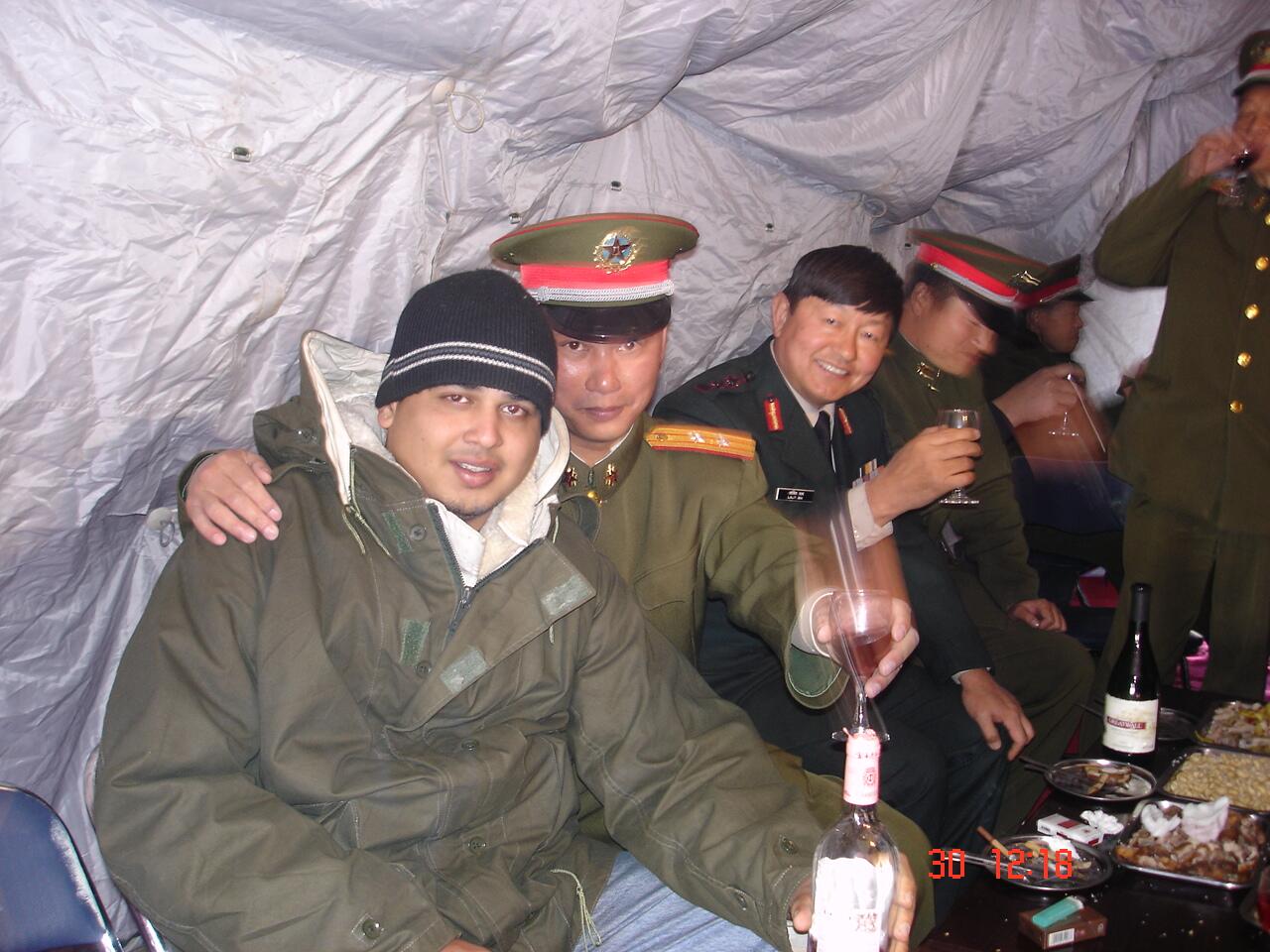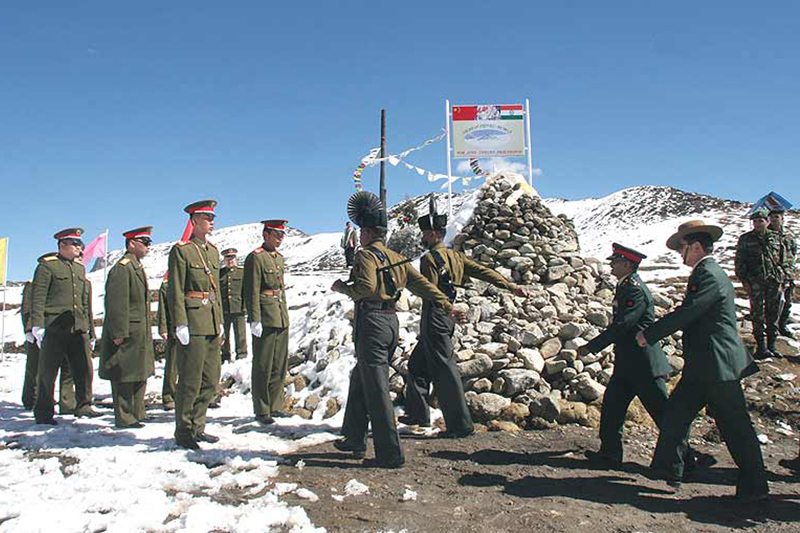
By SHIV AROOR
It’s been a month since thousands of Indian and Chinese troops have mobilised into a standoff on their clumsily non-demarcated border in Ladakh. On Saturday, for the first time in half a century of border dispute, a Lieutenant General from the Indian Army will meet with a Chinese counterpart at a building dedicated to border personnel meetings in China’s Moldo across the border from Ladakh’s Chushul, a zone that saw some of the worst fighting in the 1962 war.
But I’m not about to tell you about that. You’ve probably heard enough. I simply want to spend the next few minutes simply telling you about the photograph you see above.
As you’ve no doubt guessed, that’s me. That’s a Chinese Army officer with his arm around my shoulder. That’s a bottle of sweet ‘Yunan’ wine in my left hand, and I’ve just poured him a glass. The maroon pack of cigarettes directly in front of me isn’t mine, but that aqua coloured lighter is. My own pack of cigarettes, Wills Navy Cut tens, is a few inches away across that plate. In front of those cigarettes is a tray of well chewed chicken claws. Real chicken claws, not just the legs. The smell of those claws dominates the tent. Next to the chicken claw tray are salted peanuts. The tray of nuts sits in front of Colonel Lalit Rai, Vir Chakra, the Kargil war hero who led his unit, the 1/11 Gorkha Rifles in the capture of the Khalubar heights in Ladakh’s Batalik sector. He’s raising his glass of a different, darker wine. The same wine that’s being knocked back by the Chinese officer you see standing.
This was October 2006 in a Chinese Army tent across the border from Bum La, Arunachal Pradesh. I and a group of reporters from Delhi had been driven up the mountain from Tawang to witness an actual border personnel meeting (BPM), this one at the Brigadier level. The purpose of the visit was to showcase to journalists how robust, cheerful and human the border engagement by officers and troops really was despite years of a disputed border and patrols running into each other.

In that freezing snowblown high-altitude wasteland, things began soberly, with groups of troops marching towards the ‘Rock of Peace’, a pile of rocks. Officers from both sides greeted each other and then added a rock each to the pile. You get the picture: The higher the pile gets, the better the relationship. The ceremonials here were brief, quiet, much the only sound you could hear was the sound of boots in snowy slush and the low rumble of wind. Up the ridge from Bum La were Indian and Chinese positions, keeping watch on each other.
The two Brigadiers and their teams then got into a pair of vehicles and were driven a special durable tent for the actual meeting. This lasted less than an hour. It was after they had finished exchanging routine information about patrols that the officers and men repaired to two different sets of tents. That photograph at the top of this piece is inside the officers’ tent.
The mood in the tent was loud, with singing, drinking and plenty of hugs, handshakes and backslaps. Since the Chinese were playing host, the food and drink was theirs. Apart from the chicken claws and salted nuts, there were filets of an unidentified meat and pork ribs fried in a hot chilli paste. A Chinese officer switched on a music system with Hindi songs in a corner. That Yunan wine was potent, and in about 30 minutes the Indian and Chinese Colonels, Lieutenant Colonels, Majors — and us journalists — had managed fully warm up our insides.
When it was time to leave, as the officers hugged and shook hands, two Indian Army men brought two large boxes and hoisted them onto a table next to the officers’ tent. An Indian officer then opened the boxes and laid bare what was inside: Several boxes of perfume for the wives and girlfriends of the Chinese officers and troops. In return, two Chinese troops bring out two trunk-sized boxes from a parked Lexus SUV, carrying dragon-shaped handicrafts, packs of Chinese biscuits and pastries — and two crates of that Yunan wine.
I remember a pair of Chinese troops asking me for Indian currency, learning later that this was an obsession at border posts. I also hear one of the Colonels telling a group of grinning young Chinese officers that he’ll have ensure copies of Playboy magazine is in the Indian gift box the next time.
Everyone’s smiling as the Indian officers and men, us journalists in two, get into our vehicles and rumble through the snowed out road back across the border. I remember turning back just in time to see their last wave.

Kind of shows how cheap the Chinese were. The Indian side gave perfumes. They were well off – had a Lexus SUV and all, but got pastries, biscuits and local trinkets.